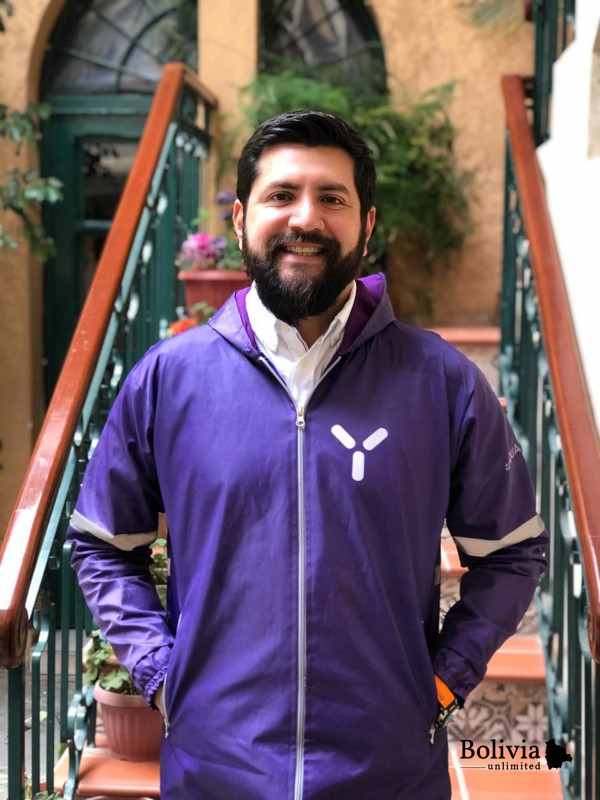Ariel Valverde

30 May, 2020 | BX Crew
Enterprise & Industry, Going Out and Food
Yaigo Delivery
Ariel Valverde is a technological entrepreneur, passionate about innovation and digital transformation. He founded Yaigo Delivery in 2019. Yaigo, whose initials in English mean: You Ask I Go is an application a hundred percent made in Bolivia. Valverde targets the Latin American market, not just the Bolivian one. They recently launched in Guatemala and are planning to expand to Paraguay in June.
The interview was translated from the Spanish and has been edited for clarity.
How was Yaigo Delivery born?
About four years ago I was talking with friends – who are now co-founders of the company – about developing a last-mile delivery solution for Bolivia not only for food deliveries but for all other types of purchases.
What was the main challenge you faced when you launched Yaigo?
The biggest challenge was to find a launch strategy. We started with Bolivian cities where delivery services through an app didn’t exist. We started in Oruro just a year ago on 23 May 2019 and from there started generating a culture of ordering through an app.
The platform used by Yaigo is a hundred percent Bolivian. Who is behind this technology? Are you thinking of expanding to other services?
Correct. The platform is fully developed by our systems team, it is NOT an app bought abroad and adapted for our country and we developed it for Android and iOS. Our software company in charge of development is OsBolivia. We are constantly growing and plan to expand to services such as Yaigo Encargos (orders), Yaigo Efectivo (cash) and very soon Yaigo Servicios (services).
How many users are there now in Bolivia? How many companies and distributors are you working with?
We have 160,000 users in Bolivia. We work with 1,200 companies and 2,000 distributors.
Yaigo's objective is to achieve coverage throughout the country, would you say that objective was achieved? What is the next stage for Bolivia?
Correct. That was one of our main goals, to be able to provide the service in all nine departments and not leave anyone out. Thank God we have achieved it. [Our strategy] for Bolivia is to position ourselves as leaders in last-mile delivery not only for individual customers but for corporations that have problems with internal logistics.
Can you tell us a bit about Yaigo in Guatemala? How did they get there? How did the quarantine affect the launch in Guatemala?
Guatemala was a great challenge because it was the first country outside of Bolivia where we launched the platform. We had to work with a different currency and time zone since they use the quetzal there and there are two hours behind Bolivia.
We decided to go to Guatemala because it is a country with 17 million potential clients with well advanced consumption in app and online delivery. Because of the quarantine in Guatemala we have managed to grow a lot in the last few months and we are already planning to expand to other Central American countries.
What other plans do you have to expand?
The next country where we are going to launch Yaigo is Paraguay in June. We are working in Paraguay to become an alternative that adds value to the local offers. This year, we have planned to go to El Salvador, Honduras and Costa Rica.
What challenges and problems are you facing with the current situation worldwide and in Bolivia?
The great challenge is to be able to cover the demand both at the level of technological infrastructure and street delivery. It is also essential at this time for customers to receive their orders with all the necessary health precautions.
How do you think the delivery market will change in the future? Do you think that the current situation will change the way people buy?
Right, consumption habits have changed and as long as the quarantine remains the same, people will be afraid to go out to public places which will lead to more online purchases and e-commerce.
Anything else you would like to add?
We started as a last-mile delivery company with the given objective of becoming a leading competitor in the entire region. We want to demonstrate that Bolivia can produce and export good technology.







